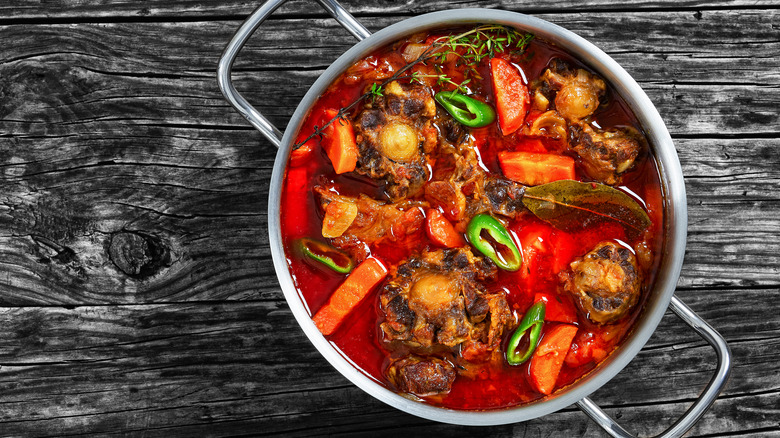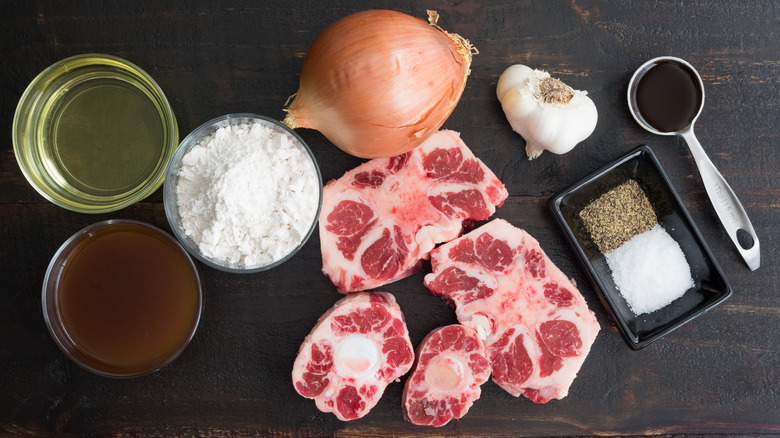What You Should Do If Your Oxtail Stew Is Too Oily
Oxtail, quite literally the tail of an ox, or castrated bull, has changed over the years. These days, the oxtail you find in your local supermarket or butcher shop is a cow's tail of either sex, and what was once a cheap, throwaway cut of meat, typically used in stews, has taken a turn toward the trendy (via Wide Open Eats).
In recent years, the humble oxtail has found its ways to the menus of fine-dining restaurants, prepared braised in wine, served over pasta, and more. This increased popularity has driven up prices considerably (via The Gleaner). As the Kitchenista's Angela Davis told Wide Open Eats, "Oxtail used to be an incredibly cheap cut of meat, something mostly poor people cooked. It's the tail, after all. But now? The secret's out."
With the price of oxtail double and even triple what it used to be, according to The Gleaner, it's important to treat the ingredient properly, for maximum taste and to ensure you get the most out of your investment.
How to soak up excess oil from your oxtail stew
Making a hearty, lip-coating oxtail stew is a delicious way to honor this rags-to-riches ingredient, but a surefire way to ruin oxtail stew is to end up with something oily and unappetizing.
Like any stew, an oxtail stew is a low-and-slow cooking affair. A traditional Jamaican oxtail stew recipe includes such ingredients as beef stock, onion, garlic, paprika, scotch bonnet pepper, ginger, cumin, allspice, brown sugar, and bay leaves (via Cleo TV). Some recipes add carrots and potatoes to produce a heartier stew.
After browning the meat and adding the rest of the ingredients, the oxtails should be simmered on low heat until all of the fat has been rendered and the collagen has been liquified. Too much fat, however, can lead to a greasiness that is off-putting to some. To guard against this, you could trim all visible fat off the oxtails prior to cooking (via African Bites). Another method is to use a large cooking spoon to skim fat from a cooked stew that seems too oily. Just a Cook recommends using a paper towel over the top of the stew at the end of cooking to soak up any unwanted oil. A longer-term approach is to cook the stew, cool it overnight in a refrigerator, and then skim any solidified fat off the top.
Obviously, you should tailor the level of fat to your personal preference. Given the amount of money oxtails cost, no one would blame you for eating every last bit of fat that you paid good money for.

